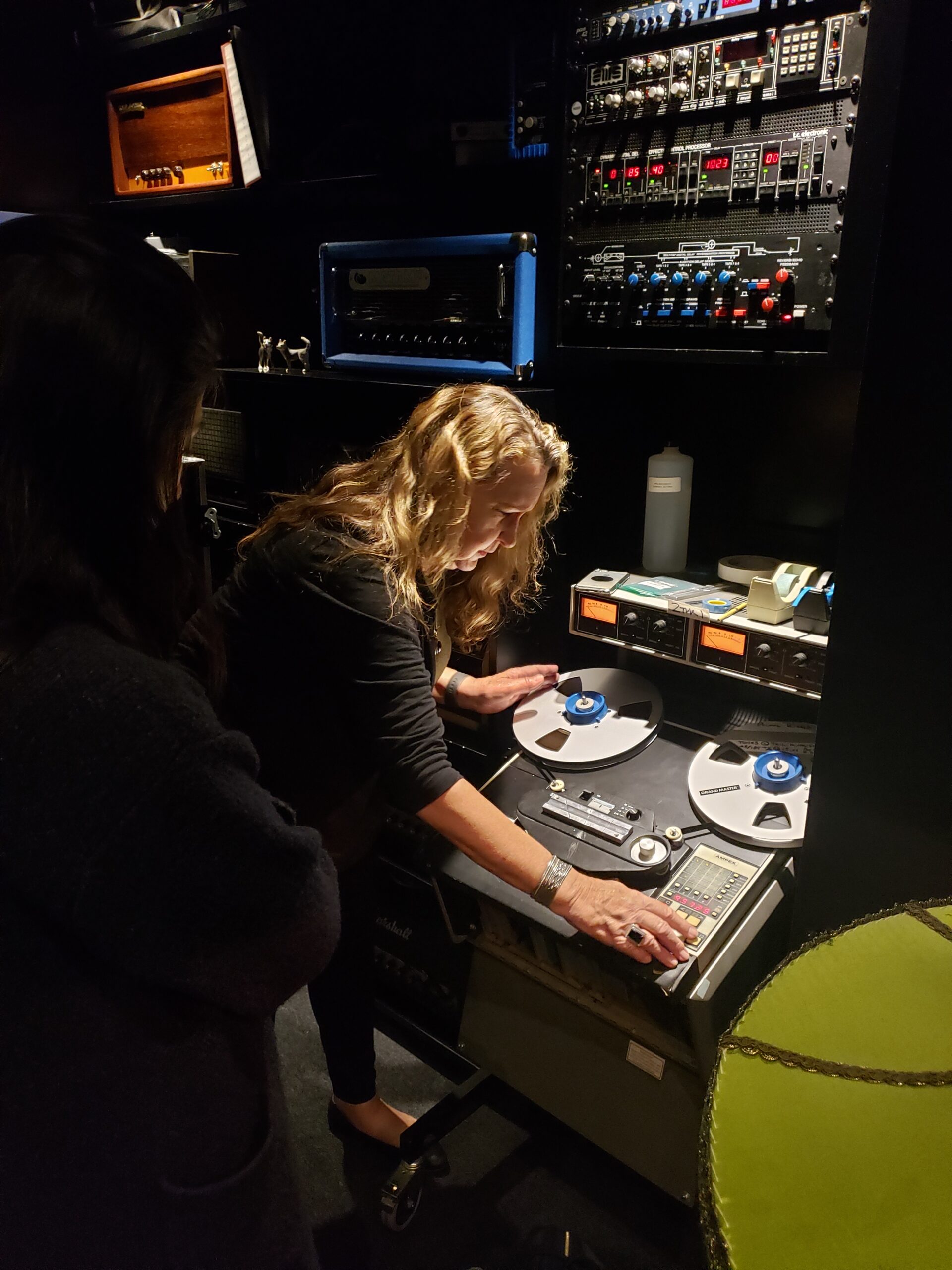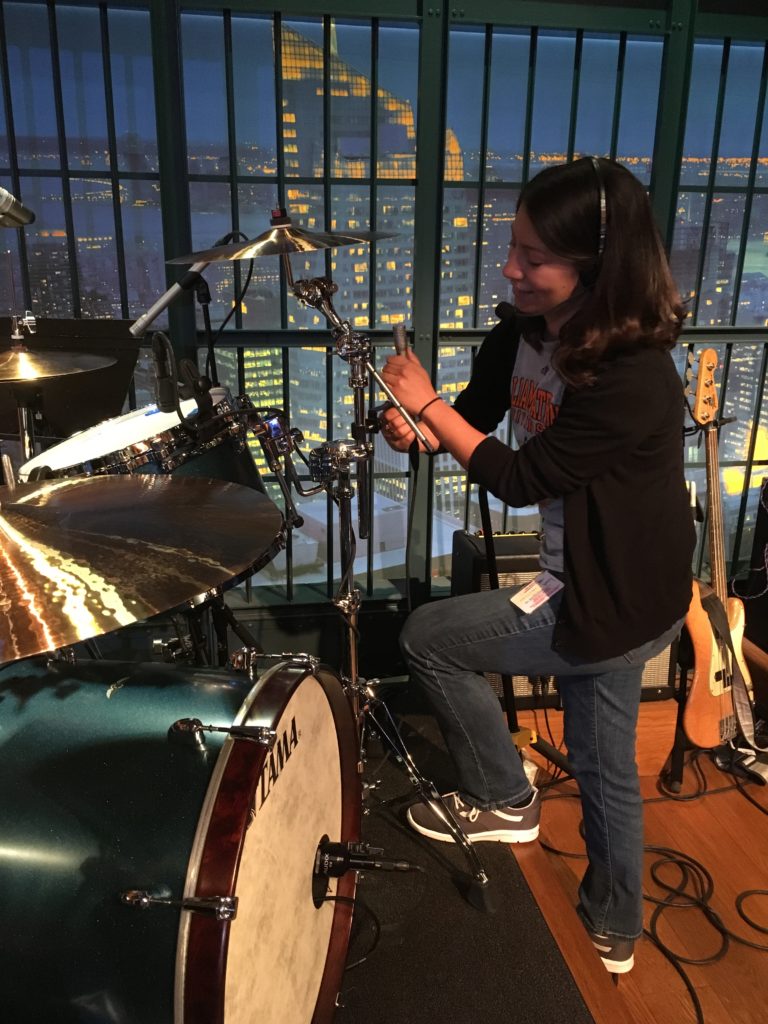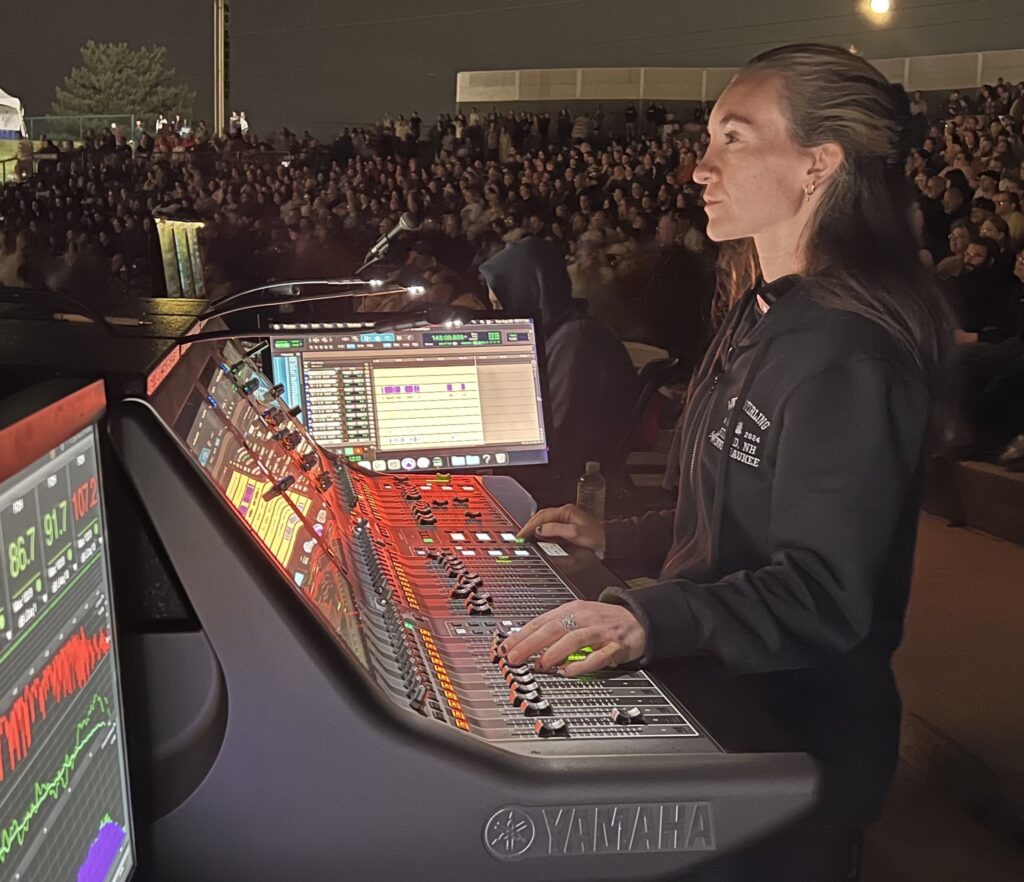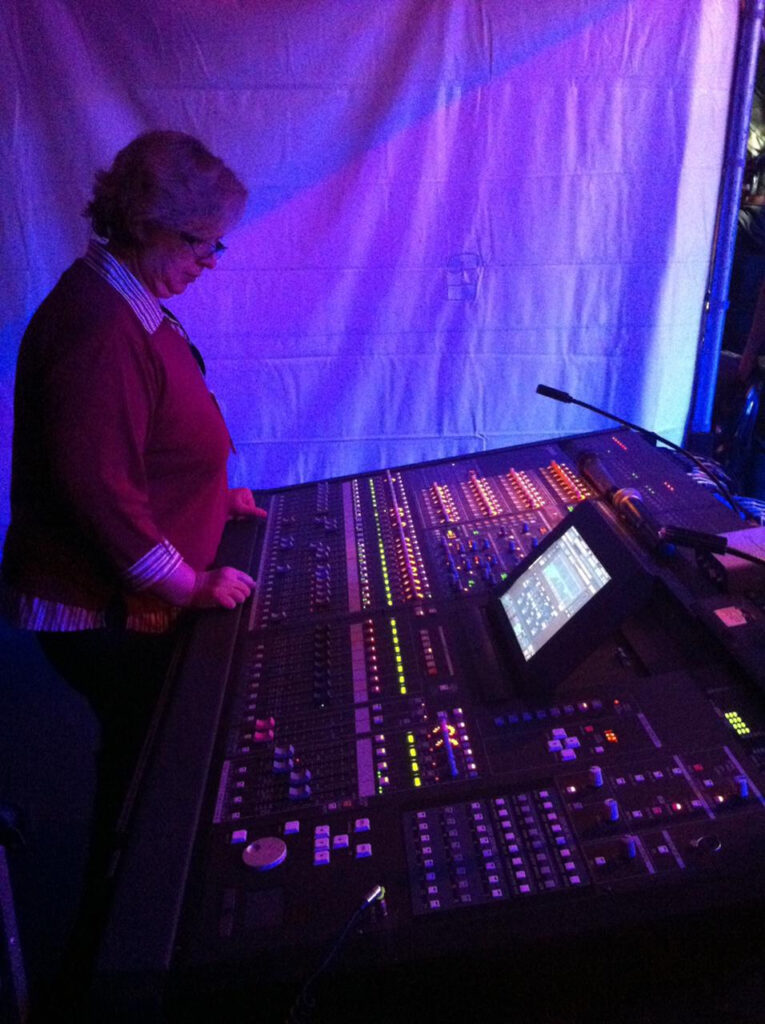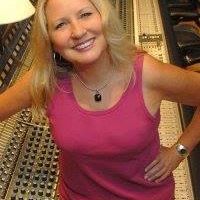 Producer/engineer LENISE BENT is one of the first women recording engineers and has worked on many iconic records including “Aja” by Steely Dan, “Breakfast in America” by Supertramp and “Tusk” by Fleetwood Mac. She was also the first woman to receive a platinum album for engineering on Blondie’s AutoAmerican.
Producer/engineer LENISE BENT is one of the first women recording engineers and has worked on many iconic records including “Aja” by Steely Dan, “Breakfast in America” by Supertramp and “Tusk” by Fleetwood Mac. She was also the first woman to receive a platinum album for engineering on Blondie’s AutoAmerican.
Lenise is a native of Los Angeles and comes from a musical and technical family. She studied piano and played flute in the Compton Festival Orchestra and at the age of eight was enrolled in the Screen Children’s Guild, working in film and television. This lead to studying film and TV production in college until one day she was invited to a recording studio. With her love of music, she was hooked, dropped out of college and enrolled in a recording school the very next day. Fortunately, her parents were supportive.
After graduating from Sound Masters Recording Institute (this was one of the only schools in Los Angeles at the time), she was hired as an assistant engineer at The Village Studios in Los Angeles, eventually working her way up to engineer. It was at The Village that Lenise furthered her education in audio recording, working with and being mentored by many legendary engineers and producers, most notably Roger “The Immortal” Nichols and Roger Linn. Lenise then became chief engineer for hit producer Mike Chapman, working with several artists including Blondie, Cher, The Knack and Suzi Quatro. Together they recorded in several iconic studios such as The Record Plant Sausalito, Air London and United Western, which is now United Recording and EastWest Studios.
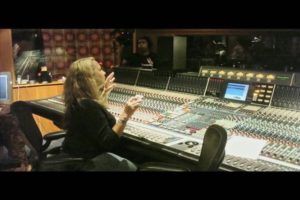 Lenise’s first session as an engineer was April 1977 at the Village Studios (formerly The Village Recorder) Studio A. The equipment was a Harrison 3224 console, Ampex ATR 100 2 Track, Technics ¼ Track, and M-79 2” 24 Track tape machine. The Artist was Americana musician (and uncle) Willie Wilson. The Village encouraged all the assistants to use un-booked studios when they weren’t working on their own projects.
Lenise’s first session as an engineer was April 1977 at the Village Studios (formerly The Village Recorder) Studio A. The equipment was a Harrison 3224 console, Ampex ATR 100 2 Track, Technics ¼ Track, and M-79 2” 24 Track tape machine. The Artist was Americana musician (and uncle) Willie Wilson. The Village encouraged all the assistants to use un-booked studios when they weren’t working on their own projects.
Lenise moved into post-production audio, beginning with creating the foreign music and effects tracks for the entire Disney cartoon catalog, and eventually specializing in recording and editing Foley. She has worked on several films and animated series, such as “Robo Cop,” “Street Sharks,” and “Extreme Ghostbusters.” She has traveled the world for Dreamworks supervising and producing the foreign dialogue and vocals for “Shrek,” “Spirit: Stallion of the Cimarron” and “Shrek 2”. This rekindled her love of recording music, and she is now engineering and producing up-and-coming musicians as well as seasoned artists. Currently, one of her projects, a blues/rock band called the Primal Kings, is all-analog, recording and mixing to tape and cutting vinyl.
Lenise believes in giving back to the audio community and is a sought-after lecturer at colleges throughout the country. She holds workshops and consults with singer/songwriters to learn basic recording techniques and is currently creating a workshop for recording and editing analog tape. She taught Production Sound, Post Production Audio and Studio Protocols and Procedures at SAE-LA and conducts “History of Audio Recording” presentations at The Grammy Museum. She also works in audio restoration and repair, including restoring the audio for the photo exhibit “Who Shot Rock n Roll” for the Annenberg Space for Photography.
Lenise is a long-standing voting member of NARAS and the Producers & Engineers Wing of the Recording Academy and is on the advisory board for the TEC Awards at NAMM as well as the executive committee of the Los Angeles chapter of the Audio Engineering Society. She also belongs to SoundGirls, Women in Music, ARSC (Assoc. of Recorded Sound Collectors), the prestigious Hollywood Sapphire Group, The Blues Foundation, and Women’s Audio Mission (WAM).
SoundGirls interviewed Lenise on her long career
What do you like best about your job?
I love working with musical creatives, inspiring and capturing their performances.
What do you like least?
The few times I got stiffed. Valuable lesson: always count your pay in front of the person paying you.
What if any obstacles or barriers have you faced?
Fortunately, very few. I was told once that I wouldn’t be working on a project I really wanted because they preferred to work with a guy but I eventually got the gig, and it was great.
How have you dealt with them?
Honestly and professionally.
Advice you have for other women and young women who wish to enter the field?
To me being a recording engineer is a genderless skill, I think the individual who is passionate about recording and producing and does the hard work to learn well will succeed. I learned early on that on a session my required skills were why I was there, not because I was a woman. In the studio, I am an engineer/producer.
Yes, I realized that there might be obstacles when I started out, there were VERY few woman in the recording world at that time, so I made sure I did my job well and brought good energy on the project.
Be versatile. The more you know, the more valuable you are. Have a strong work ethic and be willing to do the jobs others aren’t, you will move up faster.
Value yourself. Working for free is being a volunteer and if that’s what everyone else is doing then okay. Otherwise, have your rate.
Be trustworthy.
Do not say you can do something if you can’t.
Leave gender out of it. You are an audio professional; your gender is secondary. Dress appropriately.
Save your money. There was a time when being a recording engineer was a very lucrative career. Times have drastically changed. Be mindful of your audio opportunities. Join a union, work for a company that provides benefits and a pension. Start saving for retirement NOW. I know it sounds cold and unartistic, but it’s reality.
Don’t sleep with your clients or co-workers. Just don’t.
Have good social skills. You can be a ProTools wizard and know everything audio, but if no one wants to be in the same room with you for more than five minutes, it doesn’t matter. Be an asset to the project and the production team, not a liability.
Must have skills?
ProTools, basic recording techniques, signal flow, knowledge of electronics. Learn your gear and mic placement. I encourage learning what good audio sounds like. Have excellent social skills and hygiene. Remember that you are providing a service.
Favorite gear?
Neve 8068, 80 series consoles, Neumann U67, LA2A, 1176, DBX160 (Great on female vocals) limiters and compressors, EMT 140 plate reverb, Izotope RX 6, Burl converters, Prism converters, Altiverb. There is so much great gear out there that I love!
Do you ever feel pressure to be more technical or anything else than your male counterparts?
No, I don’t think more, but I better be at least as good. I prefer to be better. : ) When I started, I knew if I was more technical and did my job really well I’d have more credibility and work.
Is there anything about paying your dues you wish you would have paid more attention to that came back to haunt you later in your career?
Yes, I wish I had better electronic knowledge. When I started out studios had maintenance departments, and assistants and engineers weren’t required to know how to solder or build mic cables, etc. Good stuff to know.
When the DAW came along were you an immediate adopter? Or did it take you a long time to convert?
I was already doing post when it came along (SoundTool!), and it was a welcome tool for fixing audio right away. I was working on Foreign M, and E’s (Music and Effects) tracks so if there was any English it was so easy to remove it. Also editing foley was a breeze, everything could be synced so easily. The foley artist still had to have good sync though, still, do.
What part of analog engineering practices have you maintained?
I still record to tape. The main thing I apply to digital recording is the style of recording, making commitments to performances and moving forward, like recording to tape. I like to work quickly and in the moment while the emotion is still high and not wait until later when I can’t remember what nuance I liked. I record and comp, boom.
What are your favorite plugins?
I like the UAD bundle and Altiverb. I try a new plug-in on every project so I can learn it. I admit that I don’t use many plug-ins as I am usually in a studio with the outboard gear that I’m used to. The most important thing about plug-ins is to understand how to use them and why you are using them. I’ve received tracks that I’m hired to mix, and there will be five or six plug-ins on one track!
Do you have a few stories you can tell that have taught you valuable skills? Whether industry people skills or tech skills?
Here’s a good one…do not get stoned, high, drunk, etc. during a session. I was working with the group The Band, and we were recording basic tracks to 2” tape. I’m not a pot smoker but their keyboardist Garth Hudson kept insisting that I take a hit of his pot, that it was different and would help me really focus. After several refusals, I finally took that hit just to get him off my back. We had done three takes of a song, and now it was time to comp the track. Robbie Robertson and the others decided they wanted the first verse from take 2, the first chorus from take 3, the bridge from take one, and well you get it. Remember this is 24-track tape, folks, totally destructive audio, razor blades and splicing tape, requiring focused experience and skill in the finest of times. Thankfully, the group took a long dinner break, allowing me to spend all that time juggling take-up reels, going back and forth, as I put the track together. Yes, there was major panic. When they returned from dinner, I had just finished. We played it back, and it was all good except the bridge was upside down. They all laughed like crazy except for Robbie who was not amused. I was amazed I got it as right as I did. Ugh.
More on Lenise
- Lenise Bent NAMM Oral History
- Lenise Bent IMDb
- Lenise Bent Wikipedia
- 20 Questions With Lenise Bent
- Lenise Bent | Recording Engineer & Producer
- Super Secret Agents – Lenise Bent
- Lenise Bent – Video at Glenwood Place with Gary Allegretto
- Produce Like A Pro
